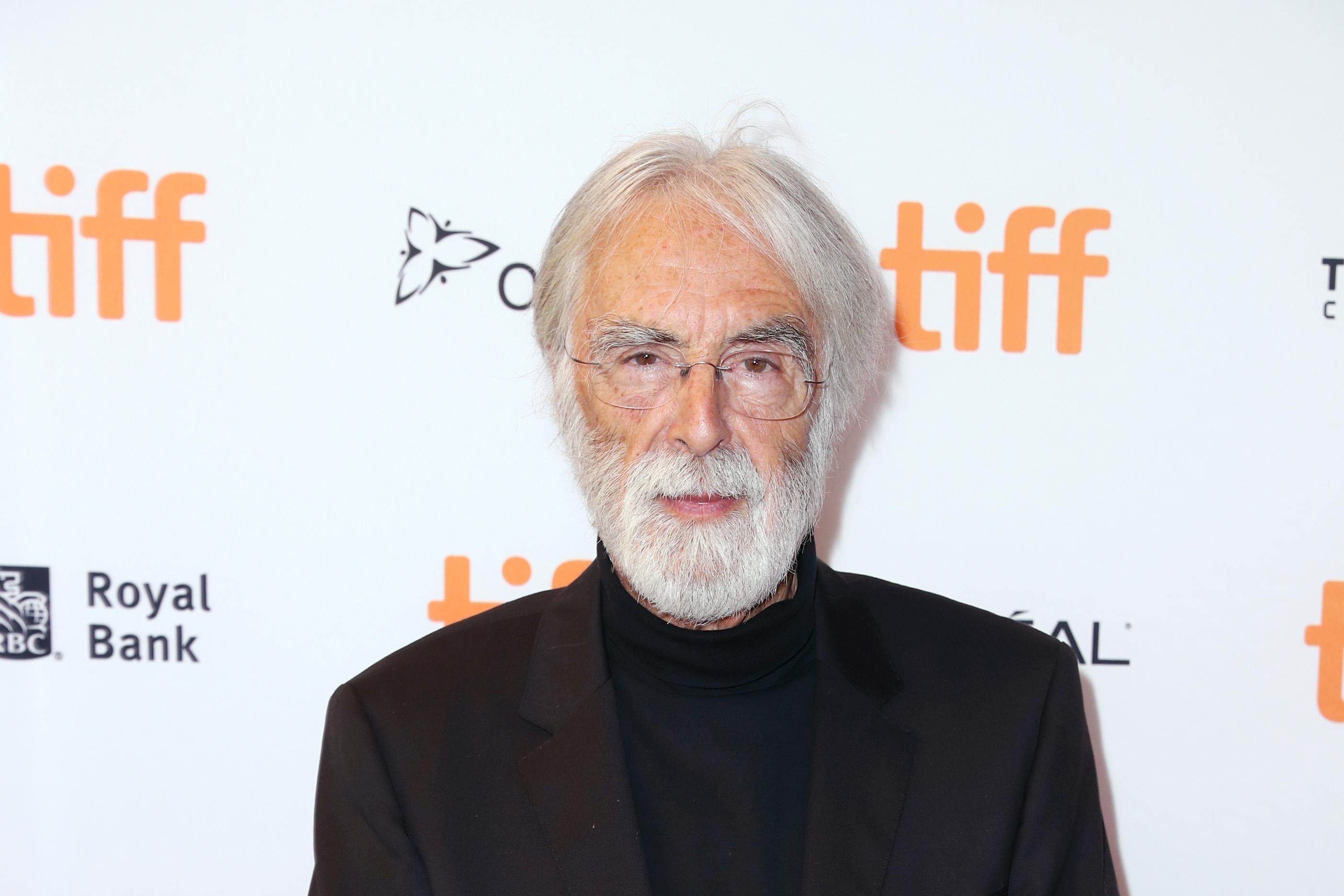It had to happen sooner or later: someone asked Academy-Award-winning director Michael Haneke what he thought about the #MeToo movement. In an interview with the Viennese newspaper Kurier, a conversation with about his upcoming TV show Kelvin’s Book veered off into cringey waters as Haneke offered his thoughts on the post-Weinstein era, and what he called “a new, man-hating Puritanism” rising in the wake of the #MeToo movement.
Haneke knew the topic was fraught: when the interviewer brought up #MeToo, his initial response was, “Oh, God, don’t ask me about that.” But he went on:
As a man, I shouldn’t say anything more about this topic. Of course I think that rape or coercion in any form should be punished—that’s not in question! But I find this prejudicial hysteria spreading now absolutely disgusting. And I don’t want to know how many of these charges, that are about incidents from 20 or 30 years ago, are really score-settling and have nothing to do with sexual assault.
Asked if he’d ever faced similar allegations, Haneke said no, and went on to discuss his directorial style—by his account, very kind to his actors—but returned to the topic of the post-Weinstein era:
What bothers me about the current debate is the totally unreflective meanness, the blind rage that has nothing to do with the facts, the prejudice destroying the lives of people whose guilt is unproven. People are getting killed in the media, lives and careers ruined. … The malignancy that hits you on the internet takes your breath away. This new, man-hating Puritanism, coming in the wake of the #MeToo movement, worries me.
It’s hard to argue with his conclusions about the nature of the internet, but the rest is a little iffy. Finally, asked about artistic freedom, Haneke tenuously connected broader issues of censorship with women speaking out about their own assaults, saying that “witch hunts should be left in the middle ages.”
An online petition recently reached an exhibition in an American museum where a picture by Balthus was hung because it shows a young girl in an ambiguous pose. Balthus is one of the most important painters of the 20th century, and this action is simply grotesque. What petty-bourgeois-gone-wild is trying to be smarter and more moral than the museum audience? Oshima’s film In the Realm of the Senses—certainly one of the deepest and most profound treatments of sexual themes—couldn’t be made today, because its financial backers would anticipate and obey this terror. Actors under suspicion are cut out of movies and TV series in order not to lose the audience. This campaign against all forms of eroticism has made artists anxious. Where do we live, in a new Middle Ages? Again, this has nothing to do with the fact that every sexual and every violent assault—whether against women or men—should be condemned and punished, but witch hunts should be left in the Middle Ages.
It seems like Haneke is conflating “actors who are accused of sexual assault” and “directors who make sexy movies” in a pretty unhelpful way here. He didn’t elaborate as to whether artists’ fear of censorship was less or more important than women’s fear of sexual assault, but he did close with a prophecy about how his comments would be received:
I can imagine what you’ll read on the internet after this interview: Haneke, the male chauvinist pig.
So far, his prediction has come true: see, e.g., Variety, Deadline, the Hollywood Reporter, and many other venues. If the director wants to avoid this sort of internet maelstrom in the future, he might do better to send the guy who ran that fake Twitter account back in the day to his next interview in his stead.
